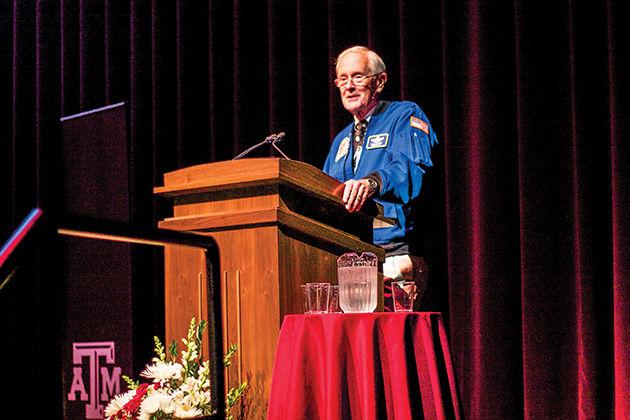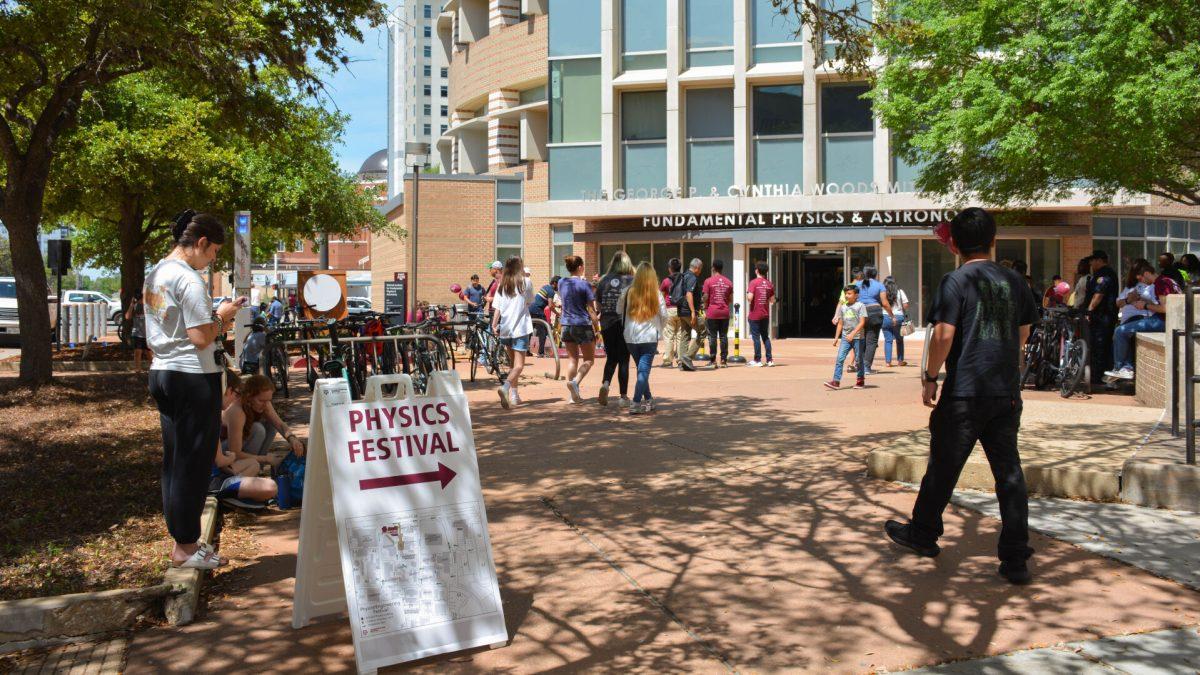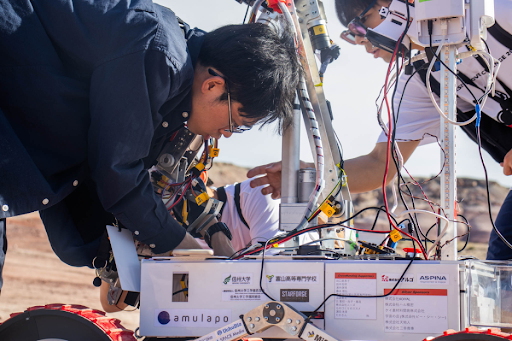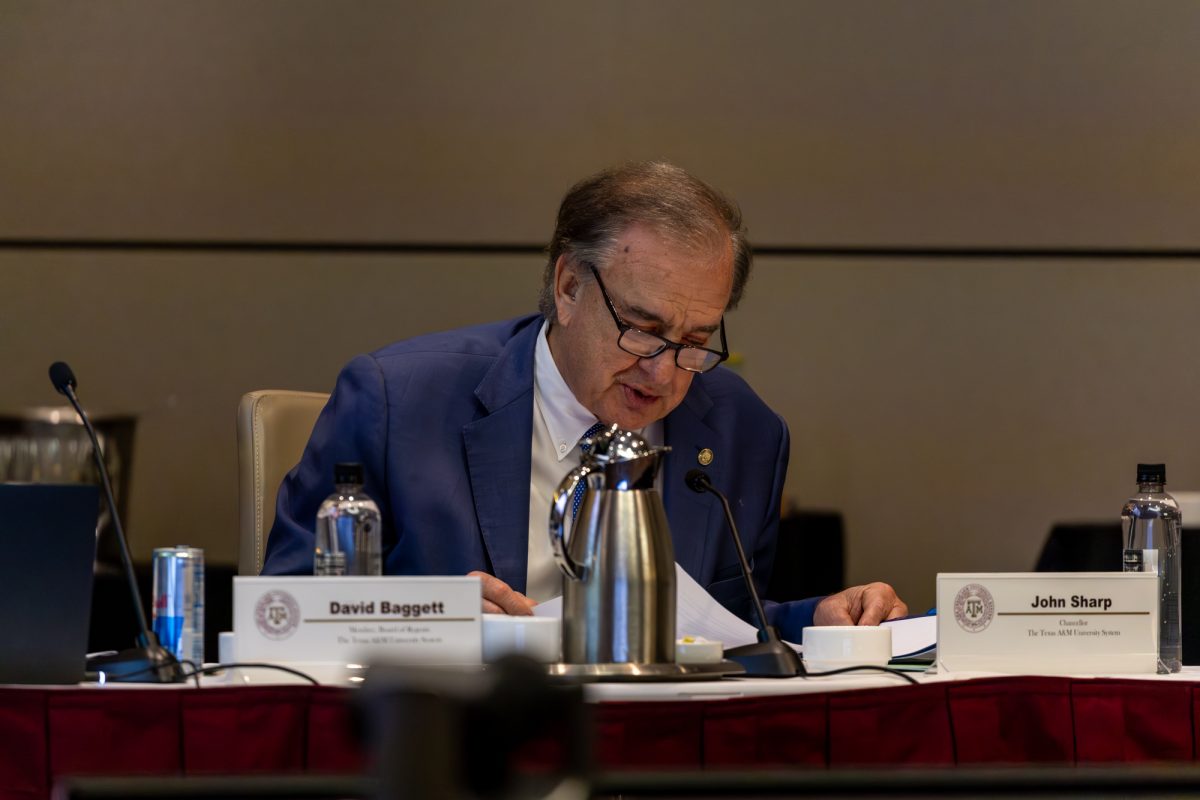Charlie Duke is a member of one of the most exclusive groups in the world. He is one of the 12 men in history to step foot on the moon — an experience which he spoke about Tuesday morning at Rudder Auditorium.
Duke’s experiences included a terrifying ride into space and holding his own “Moon Olympics” that could have accidentally killed him. Duke shared these stories and more with an audience ranging from grade-schoolers to A&M students. Duke then presented two current students with $10,000 scholarships from the Astronaut Scholarship Foundation.
Charlie Duke said he hoped to inspire the crowd of over 1,300 students from 10 different schools to further pursue an education and career in a science, technology, engineering or mathematics, field as the recipients of the scholarship have. Duke said he was interested in math and science since he was as young as the grade-schoolers in attendance, and he hoped his stories would inspire them to take on difficult coursework.
“[The grade school students] have to build a foundation in math and science to be able to go into math and science and engineering,” Duke said in an interview before taking the stage. “Hopefully this will encourage them to take those courses, and be challenged by those courses that they are looking at in middle school and high school.”
Duke walked through the 11-day Apollo 16 mission for which he was the lunar model pilot, beginning with lift-off on April 16, 1972.
“I didn’t remember anyone telling me it was going to shake that much, so I got a little nervous,” Duke said. “To say the least, John Young [Commander of Apollo 16] he was very cool, and just said ‘We are a go, Houston’ … Later on when I got to debriefing, I asked the flight surgeon ‘What was my heart rate at liftoff?’ and he said, ‘You were really excited.’ I said, ‘Well I know that, what was my heart rate?’ He said, ‘It was 144.’ I said, ‘Well what was John’s?’ to which he said, ‘His was 70.’”
Duke also shared stories that showed a more lighthearted side to his life of an astronaut.
“People ask me if I saw the Earth from the moon. The answer is no, because where we landed on the moon the Earth was directly over our heads,” Duke said. “When you look up, you just look up at the top of your helmet. Well one time I fell over backwards and there was the Earth. My heart was pounding, I don’t remember what it looked like, I was just thankful to be alive after falling over backwards, but that’s a story in itself.”
Duke said the experience of falling backwards is one he will never forget and still thinks of often, usually with a chuckle.
“At the end of my stay on the moon, I was trying to set the high-jump record for the ‘Moon Olympics.’ So John starts jumping and I start jumping, and I really jump high and straightened up. Well my center of gravity shifted backwards and over I went,” Duke said. “This was scary, because if I landed on the backpack wrong and broke it, I was dead. Luckily I responded with some training and rolled right and broke my fall on my right side … So mission control said, ‘No more Moon Olympics guys, get back inside — it’s time to get home.’”
Duke’s remarks were followed by a presentation of two $10,000 scholarships to Kirstin Maulding and William Linz, whose fields of study intersect with the Astronaut Scholarship Foundation’s mission to promote STEM education among students. Maulding is a molecular and cell biology senior, and Linz is a mathematics senior.
The Foundation was started when the Mercury 7 astronauts each donated a thousand dollars of their own money to the cause. A&M has benefited greatly from the formation of the Astronaut Scholarship Foundation — to date the Astronaut Scholarship Foundation has given over $250,000 in scholarships to A&M students in STEM fields.
3 days on the moon
October 6, 2015
0
Donate to The Battalion
$1865
$5000
Contributed
Our Goal
Your donation will support the student journalists of Texas A&M University - College Station. Your contribution will allow us to purchase equipment and cover our annual website hosting costs, in addition to paying freelance staffers for their work, travel costs for coverage and more!
More to Discover










